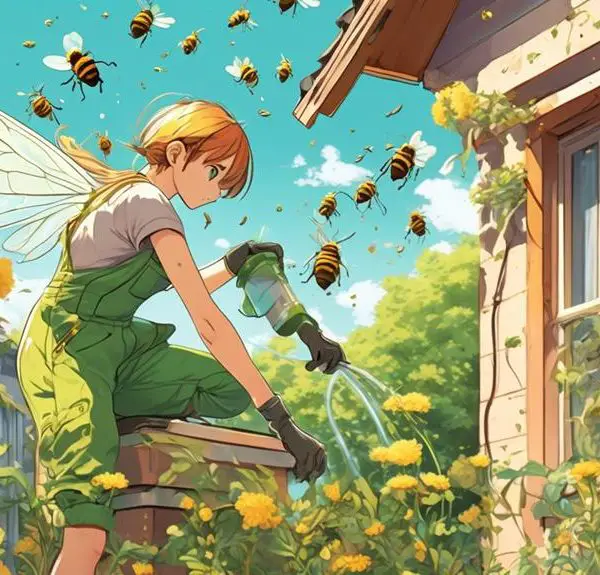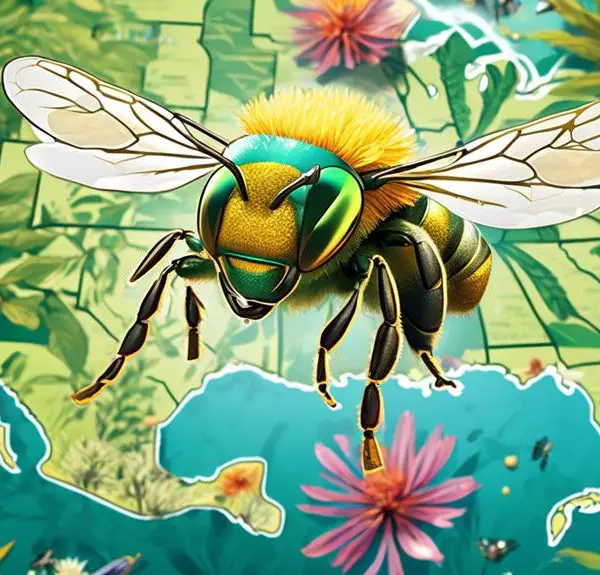Observe the intriguing diet of sweat bees; uncover whether they're bloodthirsty mini vampires or misunderstood insects, in our enlightening exploration.
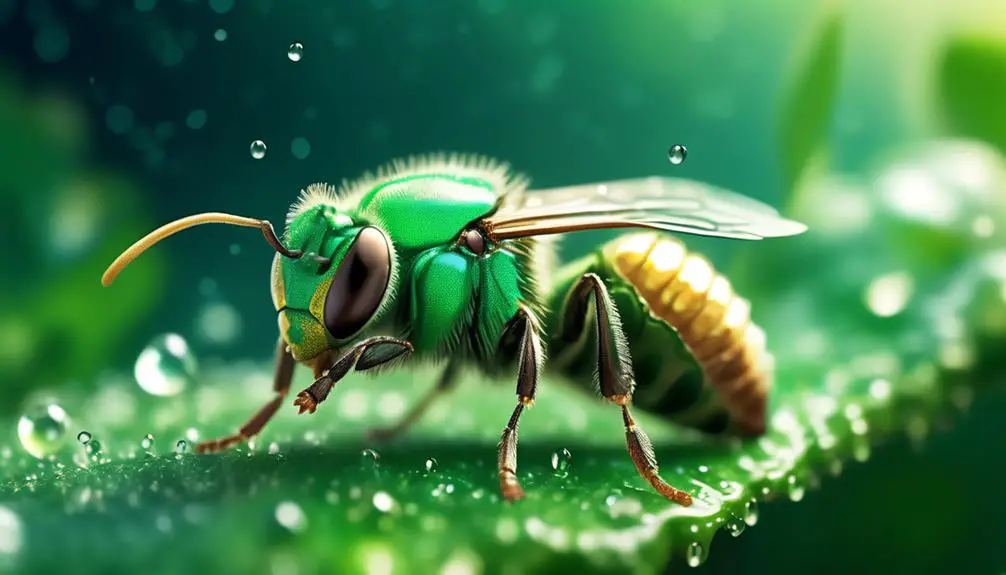
Do Sweat Bees Drink Blood
So, you're casually sipping on your morning coffee and suddenly it hits you – do sweat bees guzzle blood like miniature, winged vampires?
Before you start panicking and investing in garlic necklaces, let's take a moment to examine the diet of these tiny insects.
Are they really the bloodsuckers of the insect world or is there more to their dietary preferences than meets the eye?
Stick around, because we're about to debunk some myths and shed some light on this fascinating topic.
Key Takeaways
- Sweat bees are attracted to human sweat for its salt content, not blood.
- Sweat bees primarily feed on plant pollen and nectar, not blood.
- The name "sweat bee" is misleading and has led to the mistaken association with blood.
- Sweat bees are generally harmless to humans and only sting if provoked, causing momentary discomfort.
Understanding Sweat Bees
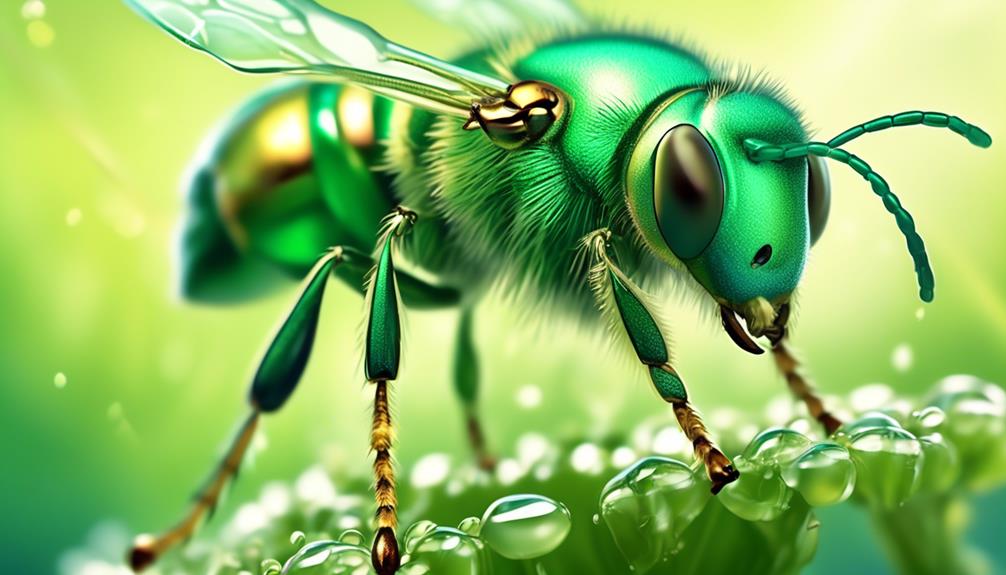
Let's dive into understanding sweat bees, tiny insects drawn to the salt in human sweat. They're more interested in your perspiration than your picnic. While their name might make you cringe, they're generally harmless and pose little threat to humans.
You mightn't even notice a sweat bee unless it's landed on your skin, lapping up the salty sweat beads with its tiny, specially adapted tongue. Though they're attracted to sweat, they don't rely on it for survival. They're pollinators, buzzing from flower to flower, helping to keep our ecosystem healthy.
Fear not, sweat bees aren't out for blood, but a disturbance, like a swat or squish, can trigger a sting. The sting of a sweat bee, however, is considered less painful than that of other bees or wasps. Most people describe it as a minor irritation, quickly forgotten.
Sweat bees are diverse, with over 1000 species in the United States alone, and they vary in color from metallic green to dull brown. So next time you're outdoors, spare a thought for these tiny, misunderstood creatures. They're not after your blood, just a salty snack!
Sweat Bees Dietary Preferences
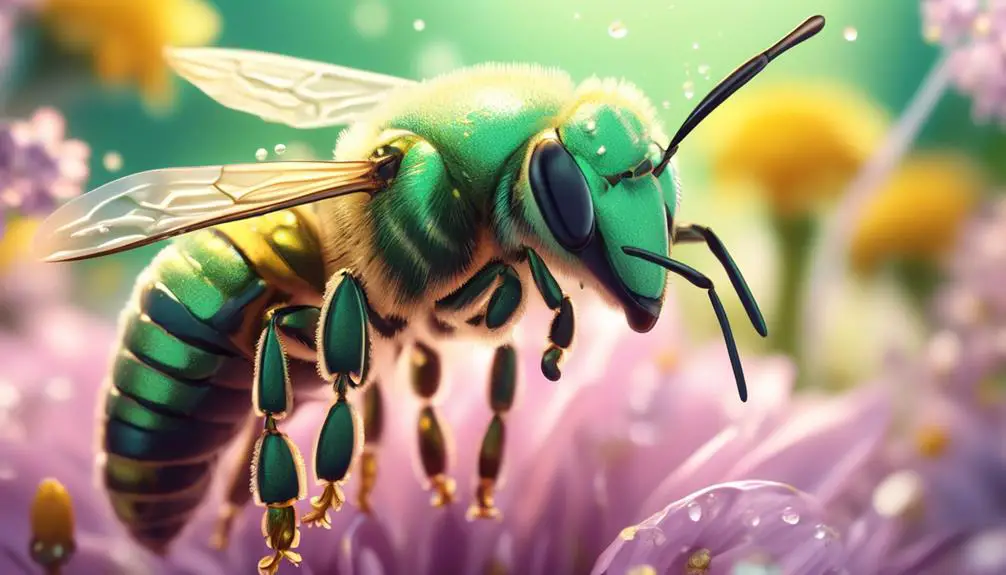
Diving into their dietary preferences, you'll find sweat bees aren't solely reliant on your perspiration for sustenance. In fact, you'll be relieved to learn that sweat isn't even their primary food source. Instead, they're mainly attracted to the salt present in your sweat, which they need for nutrition.
These little creatures are actually pollen and nectar specialists. Their diet primarily consists of plant pollen and nectar, which they gather from a variety of flowers. They play a crucial role in pollinating plants, contributing significantly to the biodiversity and health of our ecosystems.
However, don't be surprised if you see them around your picnic food or hovering over your sugary drinks. Just like us, they're attracted to sweet things. They're opportunistic feeders, meaning they'll consume whatever is readily available that meets their dietary needs.
The Myth About Blood Consumption
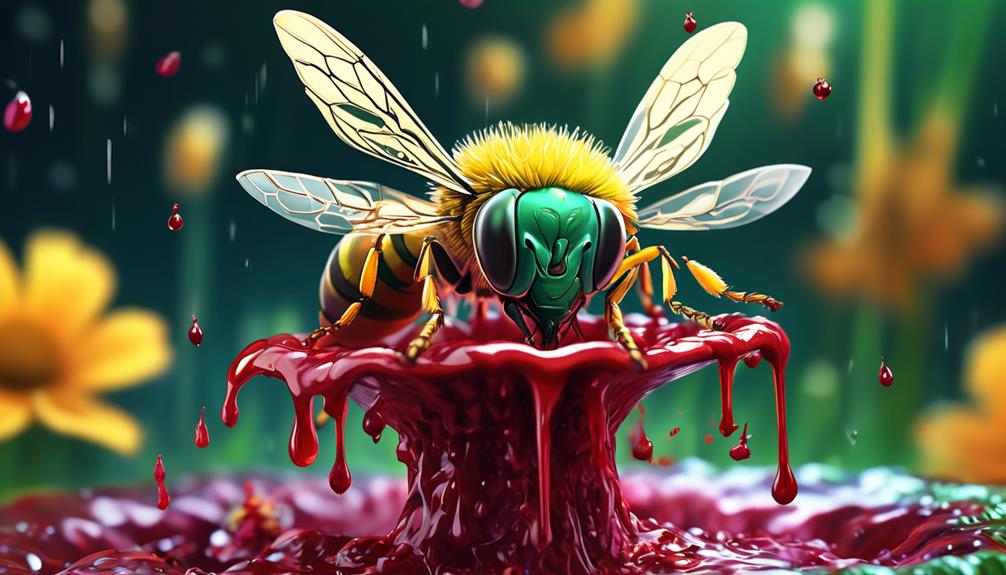
Despite the unnerving rumors, sweat bees don't actually drink blood; it's a popular myth steeped in misunderstanding. You might've heard stories or read articles suggesting these tiny insects have a vampiric diet, but that's not the case.
Here are a few reasons why this myth has gained traction:
- Sweat bees are often observed landing on people, which may lead to the mistaken belief they're after blood. In reality, they're attracted to human sweat for its salt content.
- When a sweat bee stings, it can cause a small amount of blood to surface. This could give the impression that they're consuming blood, but that's not their intention.
- Sweat bees are known to be attracted to various body fluids, including tears. This might've led to the mistaken association with blood.
- Lastly, the name 'sweat bee' could be misleading. It may have been interpreted as a propensity for bodily fluids, including blood.
Facts About Bee Feeding Habits
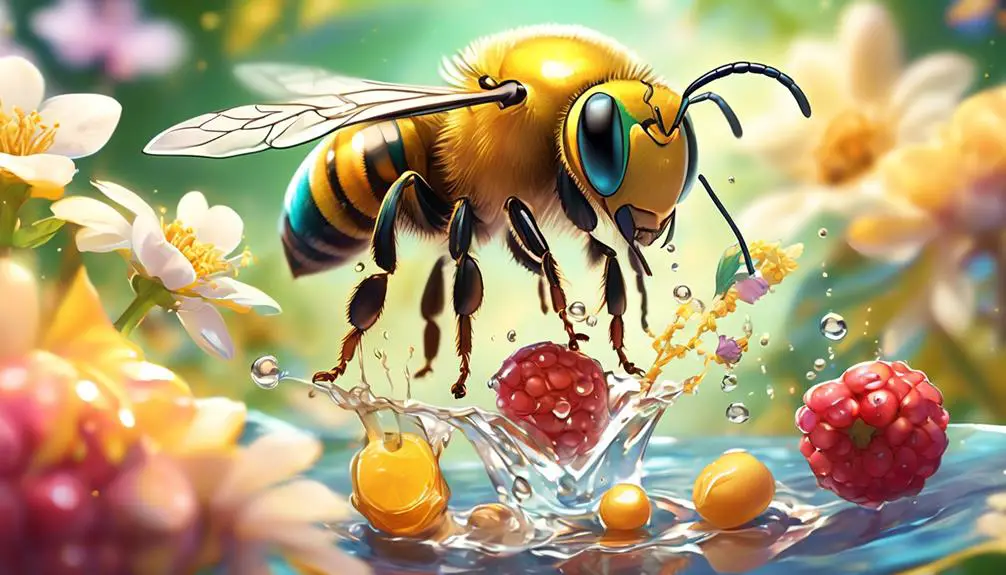
Now that we've dispelled the myth of sweat bees drinking blood, it's crucial to understand their actual feeding habits. Sweat bees, like other bees, primarily feed on nectar and pollen from flowers. This diet provides them with the energy they need and the protein required for growth and reproduction.
You'd be interested to know that sweat bees also have a unique trait: they're attracted to human sweat. They don't consume it for sustenance but are drawn to the salt it contains. So, when a sweat bee lands on you, it's not after your blood but merely your sweat.
Understanding bee feeding habits can help us coexist better with these important pollinators. They're harmless and only sting when provoked. So, next time a sweat bee lands on you, don't swat it away in panic. Instead, consider it a friendly reminder of their crucial role in our ecosystem.
In essence, sweat bees have a plant-based diet and show a preference for sweat, not blood. Recognizing this, we can help protect them, benefiting our environment and food production.
Sweat Bees Interaction With Humans
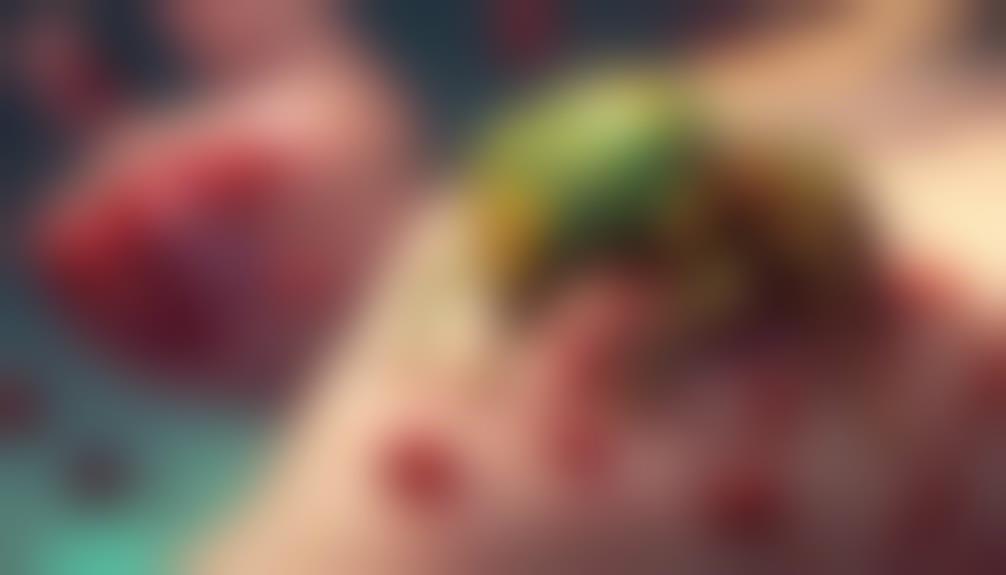
When it comes to interacting with sweat bees, it's important to remember that they're more interested in your perspiration than causing you any harm. These tiny bees are attracted to the salt in your sweat, not your blood. They may land on your skin on a hot day, seeking out the minerals they need to survive.
Sweat bee encounters are generally harmless, but it doesn't mean they can't sting. Remember these key points:
- Sweat bees only sting if provoked. Avoid swatting at them or making sudden movements.
- Their sting is mild compared to other bees and typically only causes momentary discomfort.
- If stung, clean the area and apply a cold compress to reduce swelling.
- People with bee allergies should take precautions as they would with any other bee species.
Conclusion
So, you've learned a bit about sweat bees today. They're fascinating creatures, aren't they?
But don't worry, they won't be drinking your blood. Yes, they're attracted to your sweat, but they're mainly after the salts and proteins.
They're just part of the incredible biodiversity that surrounds us. If they do land on you, stay calm and appreciate the interaction.
Remember, they're more interested in flowers than they're in you.

